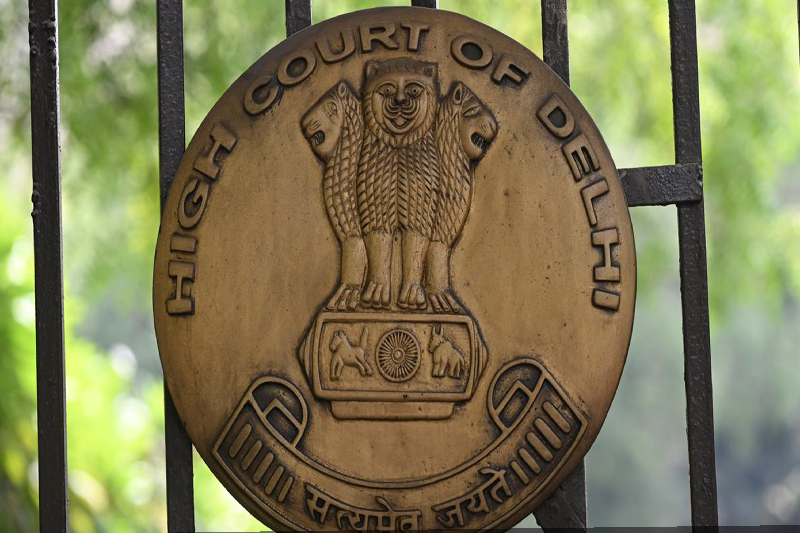
Delhi High Court Abolishes Attendance-Based Exam Restrictions for Law Students: A Landmark Step Toward Humane Education Reform
In a landmark judgment aimed at reforming India’s legal education system, the Delhi High Court has ruled that no law student across the country can be barred from appearing in examinations or promoted to the next semester due to a shortage of attendance.
The ruling, delivered by a bench of Justices Prathiba M. Singh and Amit Sharma, marks a major shift in academic policy and student rights. The court also directed the Bar Council of India (BCI) — the regulatory body overseeing legal education — to review and modify existing attendance norms to make them more flexible and student-friendly.
The origins of this reform trace back to the tragic 2016 suicide of law student Sushant Rohilla, a student at Amity Law School, Noida. Rohilla took his life after being barred from sitting for his semester exams due to an attendance shortage. His death triggered a nationwide conversation about the mental health toll caused by rigid academic rules and attendance policies.
The Supreme Court of India took suo motu cognisance of the matter and, in March 2017, transferred the case to the Delhi High Court for detailed examination. After years of hearings, the High Court’s verdict now formally addresses those systemic flaws that led to Rohilla’s death.
Court’s Observation: Education Should Not Lead to Mental Distress
While announcing the decision, the bench underscored the importance of mental well-being in education. It stated that “education cannot be made so stringent as to lead to mental trauma or death of a student.”
The judges expressed concern that strict attendance norms, often enforced without sensitivity, had created undue pressure on law students. They observed that educational institutions must be centers of learning and growth, not sources of anxiety or despair.
The court’s words serve as a reminder that student welfare must take precedence over bureaucratic rigidity.
Directive to BCI: Redefine Attendance Norms Through Consultation
The Delhi High Court has ordered the Bar Council of India to conduct a comprehensive stakeholder consultation to review and amend attendance requirements currently in force.
This consultation must involve students, teachers, and parents, ensuring that the new norms balance academic discipline with compassion and mental health considerations.
Until this review process is completed, the court ruled that no student from any recognised law college or university in India should be barred from taking exams or continuing their education due to attendance shortage.
Colleges Cannot Impose Stricter Rules Than BCI
The court also issued a strong clarification to prevent institutional overreach. It declared that no law college or university can implement attendance requirements stricter than those prescribed by the BCI.
This directive seeks to ensure uniformity across institutions and prevent colleges from using attendance as a punitive measure. Many private law schools have historically enforced rigid attendance policies — in some cases requiring up to 90% attendance — and penalised students for minor shortfalls. The ruling effectively curbs such practices.
Mandatory Support Measures for Students
Beyond relaxing the attendance rule, the court outlined a set of proactive measures that every law institution must now implement to support students and promote transparency:
- Weekly Attendance Updates:
Colleges must upload student attendance records on an online portal or mobile app every week, ensuring students can track their status in real time.
- Monthly Notifications to Parents or Guardians:
Institutions must send monthly attendance reports to parents or guardians, helping families stay informed and avoid last-minute shocks before exams.
- Extra Classes for Low-Attendance Students:
Colleges are required to conduct supplementary classes — online or offline — for students with attendance shortages, providing them an opportunity to meet the minimum requirements.
According to the bench, these steps will help law colleges move from a punitive model to a supportive learning ecosystem, where students are guided rather than penalised.
Key Highlights of the Court’s Directions
|
Area |
Directive |
Purpose |
|
Exam Eligibility |
No student to be barred from exams for attendance shortage |
Ensure fair academic access |
|
BCI Role |
Modify attendance norms after stakeholder consultation |
Make rules more student-centric |
|
Institution Limits |
Colleges cannot set rules stricter than BCI |
Maintain national uniformity |
|
Transparency Measures |
Weekly attendance updates and monthly parent alerts |
Prevent sudden disqualifications |
|
Student Support |
Mandatory extra classes for low-attendance students |
Encourage retention and learning |
A Step Toward Humane Legal Education
The judgment represents a broader philosophical shift in how Indian educational institutions should approach discipline, attendance, and performance. By focusing on transparency and mental health, the Delhi High Court has set a precedent for compassionate governance in higher education.
Legal experts believe this decision could encourage other regulatory bodies — such as the University Grants Commission (UGC) and state education departments — to re-evaluate attendance policies across disciplines.
The ruling also aligns with growing global discourse on student mental health and academic flexibility, especially after the pandemic highlighted the need for adaptable learning environments.
Preventing Future Tragedies: Lessons from the Rohilla Case
The High Court’s verdict stands as a tribute to Sushant Rohilla’s memory and a safeguard for future generations of law students. By ensuring that no student faces exam denial or academic exclusion solely due to attendance issues, the court has addressed a long-standing cause of student distress.
As Justice Singh noted during the hearing, education must build resilience, not break spirits.
Conclusion: Toward a More Supportive Academic Future
The Delhi High Court’s decision to abolish attendance-based exam restrictions marks a turning point for India’s legal education system. It redefines the balance between discipline and empathy, ensuring that institutions nurture well-rounded, mentally healthy professionals rather than overburdened students.
By directing the Bar Council of India to update its rules and mandating transparent attendance tracking and remedial support, the court has not only modernised legal education but also restored humanity to the system.
This reform, rooted in the painful lessons of the 2016 Rohilla case, represents hope — a commitment to ensuring that no student in India ever faces such distress again.


